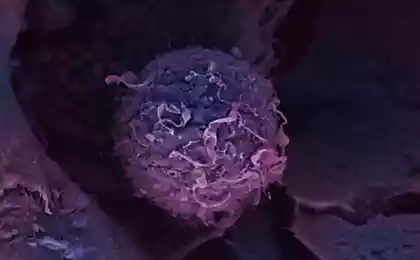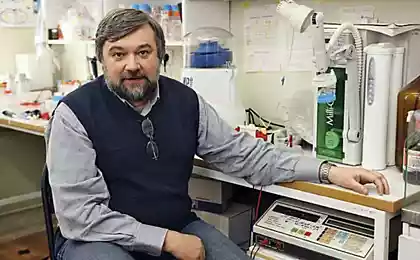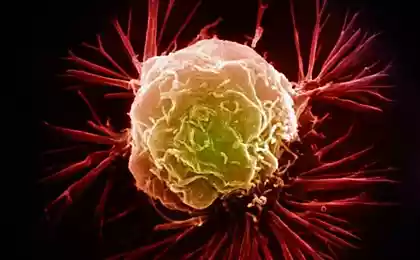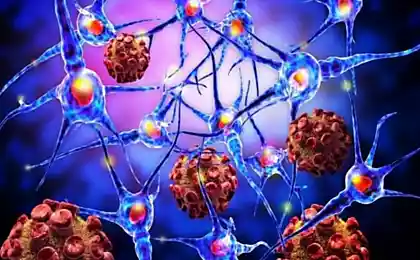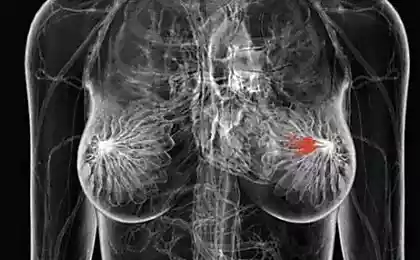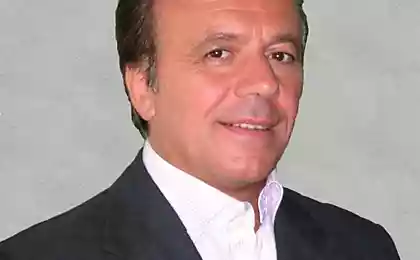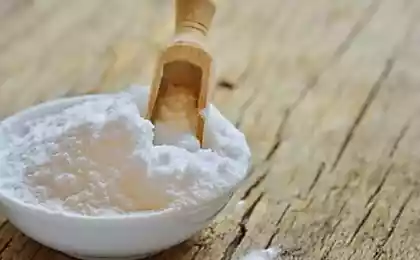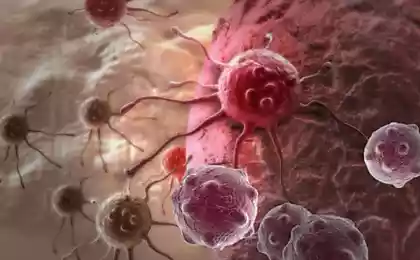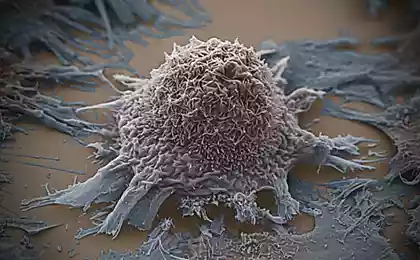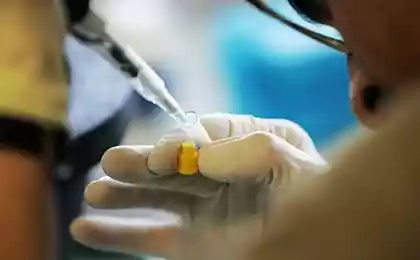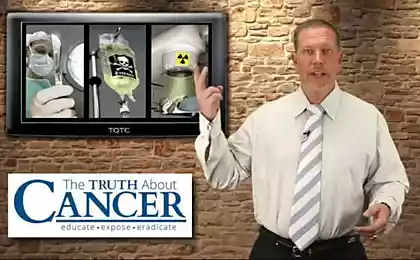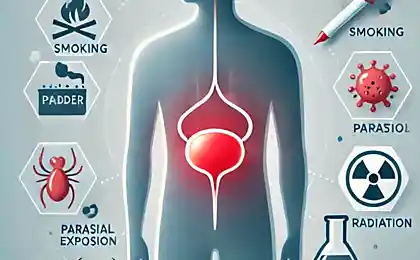605
Selenium: cancer prevention and other diseases
Dr. Donald W. Miller, cardiac surgeon and Professor of surgery at the University of Washington in Seattle, shares impressive research findings on the properties of selenium, which help fight cancer.
As the researchers found, the cells of all organisms — bacterial, animal or non-animal origin – required selenium for proper functioning.
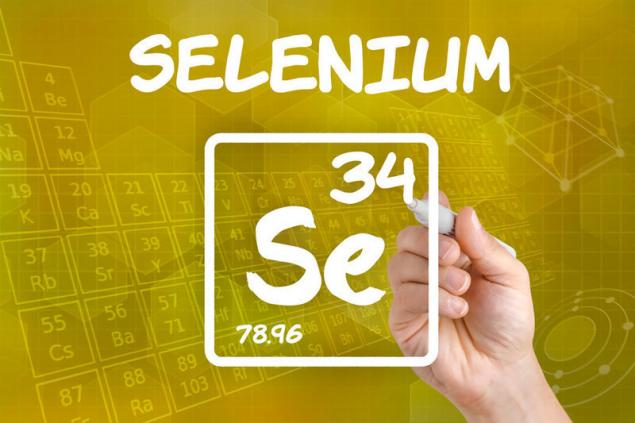
Selenium deficiency is associated with a wide range of disorders and diseases, including:
Reference intake (RNF), established by the Council on foods and nutrition of the United States, is 55 mcg of selenium per day – this rule is based on the results of two studies that show this amount of selenium supports the optimum formation of glutathione peroxidase. It is believed that this is sufficient for 98 percent of the population.
However, the recommendations of the government do not take into account the previous conclusion, which shows that a dose four times higher (200 mcg) has anti-cancer effects and is not toxic.
A number of scientific explanations for the anticancer effect of selenium include:
The first signs of selenium toxicity are "garlic breath" and dry skin. With the growth of intoxication on the nails appear white spots, the nails become brittle and fall off. According to one study, loss of hair and nails occurs when selenium intake reaches 4 990 mg per day.
From Dr. Mercola
Indeed, many people need to make sure that they get enough selenium. Especially if you live in an area where the soil is poor in selenium, as in these regions the incidence of cancer among the population tend to exceed the incidence in the population living in areas with selenium-rich soil.
I recently met Dr. William La valley from Austin, Texas. I was impressed with his comprehensive look at nutritional therapy for the treatment of painful conditions natural methods of treatment.
For many years he carefully studied literature, devoting time to understanding the complex molecular biological ways to make it clinically reasonable form.
I asked him about it and thought that the information you also seem useful.
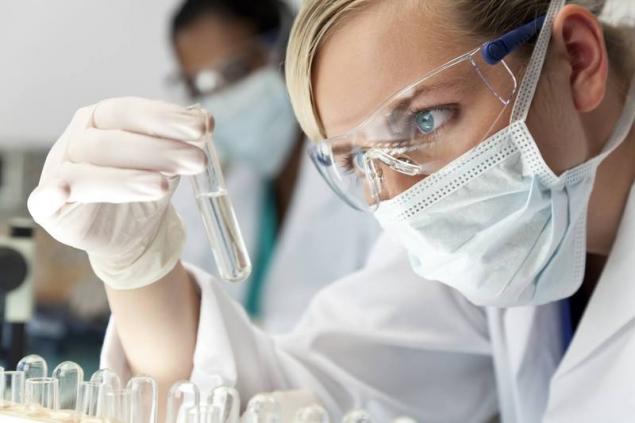
For the prevention of cancer and other diseases, the causes of which are associated with high okisliteljno, a fairly small dose up to 200 mcg per day, especially in the form of Selenomethionine. Higher doses can cause problems.
For cancer treatment have a good evidence base supporting the use of significantly higher doses in the correct dosage form — especially the selenium Selenite in the drops — as part of a comprehensive integrative medical and complementary cancer Protocol.
However, this information may be misleading.
Lower doses are recommended for the prevention of disease, while higher doses are used for treatment only after the cancer diagnosis. A higher dose is intended to regulate the proliferation of cells by stimulating apoptosis (programmed cell death).
Some proponents of natural health lead people to believe that 200 mcg of selenium is enough for anti-cancer effect due to the mechanism of stimulation of apoptosis. I do not find any evidence of this.
The dose of selenium 200 mcg is aimed at the cellular antioxidant mechanism that reduces the load of ROS (reactive oxygen species) and that this explains its anti-cancer properties, and because selenium also supports better functioning of cells, it is likely and supports the immune system. You can also talk about other specific immune benefits other molecular pathways.
Higher doses cause the production of reactive oxygen species (ROS) are cytotoxic in acute dose. Gradual, slow increase in the dose of selenium, probably allows the cells to adapt to the selenium without suffering toxic effects, except that after the cells less able to respond to the antioxidant benefits of glutathione.
The bottom line
A little high quality selenium is necessary for good health. High acute doses are cytotoxic and can be harmful or useful, depending on the application purpose. The evidence base supports the use of high doses under appropriate medical supervision to combat cancer, proapoptotic stimulation and activation of molecular pathways that inhibit/block the penetration of tumors.
To maintain health, you should use selenium in a good bioavailable form, in a low dose (e.g., 200 mcg). It probably provides a beneficial anti-cancer effect due to increasing the cellular pathways of the metabolism of glutathione. You should avoid higher doses, and take them only under the supervision of a competent physician who understands what ways are stimulated. Such doses should be reserved for a targeted fight against diagnosed with cancer.
Do not take high-dose selenium for a long time as a preventive action against cancer. Selenium in high doses stimulates the formation of peroxide anion, which can cause problems.
The use of antioxidants and cancer prevention is complex. If the body has not yet discovered cells in the precancerous stage, or incipient cancer, the use of antioxidants may contribute to the survival of cancer cells and worsen the situation. Such people need targeted proapoptotic, anti-cancer treatment.
The problem is, many of them don't know it yet. Studies of lung cancer, which show that the use by smokers of beta-carotene and vitamin A is associated with an increase in the incidence of cancer, due, most likely, this "indescribable" effect.
Before these studies I thought that the use by smokers of some antioxidants (if the sample size of the study was large enough) would be associated with an increase in the incidence of lung cancer (yet this effect support in antioxidants the survival of cancer cells is not fully understood). When the results came, my thought was, "This was expected".
The medical community was surprised, and community natural health so generally nearly not enough. I think very few understand the molecular biology, so the reaction to the results of research is largely determined by personal preferences. I predict similar results for other cancers, provided an adequately sized cohort.published
© Dr. Joseph Mercola
The materials are for informational purposes. Remember, self-life-threatening, for advice regarding the use of any medicines and methods of treatment, contact your doctor.
Also interesting: Joseph Mercola: How to become healthy by using simple technique
Walter Last: a New approach to cancer treatment
P. S. And remember, only by changing their consumption — together we change the world! ©
Source: russian.mercola.com/sites/articles/archive/2016/03/17/%D1%81%D0%B5%D0%BB%D0%B5%D0%BD.aspx
As the researchers found, the cells of all organisms — bacterial, animal or non-animal origin – required selenium for proper functioning.

Selenium deficiency is associated with a wide range of disorders and diseases, including:
- Hypothyroidism
- cognitive impairment
- cancer (including lung, prostate, colorectal, skin)
- heart failure
- coronary heart disease (atherosclerosis)
Reference intake (RNF), established by the Council on foods and nutrition of the United States, is 55 mcg of selenium per day – this rule is based on the results of two studies that show this amount of selenium supports the optimum formation of glutathione peroxidase. It is believed that this is sufficient for 98 percent of the population.
However, the recommendations of the government do not take into account the previous conclusion, which shows that a dose four times higher (200 mcg) has anti-cancer effects and is not toxic.
A number of scientific explanations for the anticancer effect of selenium include:
- Increasing antioxidant protection and immune system
- Regulation of cell proliferation and apoptosis (programmed cell death)
- The suppression of growth of blood vessels that supply the tumor with nutrients
- Suppressing the invasion of tumor cells.
The first signs of selenium toxicity are "garlic breath" and dry skin. With the growth of intoxication on the nails appear white spots, the nails become brittle and fall off. According to one study, loss of hair and nails occurs when selenium intake reaches 4 990 mg per day.
From Dr. Mercola
Indeed, many people need to make sure that they get enough selenium. Especially if you live in an area where the soil is poor in selenium, as in these regions the incidence of cancer among the population tend to exceed the incidence in the population living in areas with selenium-rich soil.
I recently met Dr. William La valley from Austin, Texas. I was impressed with his comprehensive look at nutritional therapy for the treatment of painful conditions natural methods of treatment.
For many years he carefully studied literature, devoting time to understanding the complex molecular biological ways to make it clinically reasonable form.
I asked him about it and thought that the information you also seem useful.

For the prevention of cancer and other diseases, the causes of which are associated with high okisliteljno, a fairly small dose up to 200 mcg per day, especially in the form of Selenomethionine. Higher doses can cause problems.
For cancer treatment have a good evidence base supporting the use of significantly higher doses in the correct dosage form — especially the selenium Selenite in the drops — as part of a comprehensive integrative medical and complementary cancer Protocol.
However, this information may be misleading.
Lower doses are recommended for the prevention of disease, while higher doses are used for treatment only after the cancer diagnosis. A higher dose is intended to regulate the proliferation of cells by stimulating apoptosis (programmed cell death).
Some proponents of natural health lead people to believe that 200 mcg of selenium is enough for anti-cancer effect due to the mechanism of stimulation of apoptosis. I do not find any evidence of this.
The dose of selenium 200 mcg is aimed at the cellular antioxidant mechanism that reduces the load of ROS (reactive oxygen species) and that this explains its anti-cancer properties, and because selenium also supports better functioning of cells, it is likely and supports the immune system. You can also talk about other specific immune benefits other molecular pathways.
Higher doses cause the production of reactive oxygen species (ROS) are cytotoxic in acute dose. Gradual, slow increase in the dose of selenium, probably allows the cells to adapt to the selenium without suffering toxic effects, except that after the cells less able to respond to the antioxidant benefits of glutathione.
The bottom line
A little high quality selenium is necessary for good health. High acute doses are cytotoxic and can be harmful or useful, depending on the application purpose. The evidence base supports the use of high doses under appropriate medical supervision to combat cancer, proapoptotic stimulation and activation of molecular pathways that inhibit/block the penetration of tumors.
To maintain health, you should use selenium in a good bioavailable form, in a low dose (e.g., 200 mcg). It probably provides a beneficial anti-cancer effect due to increasing the cellular pathways of the metabolism of glutathione. You should avoid higher doses, and take them only under the supervision of a competent physician who understands what ways are stimulated. Such doses should be reserved for a targeted fight against diagnosed with cancer.
Do not take high-dose selenium for a long time as a preventive action against cancer. Selenium in high doses stimulates the formation of peroxide anion, which can cause problems.
The use of antioxidants and cancer prevention is complex. If the body has not yet discovered cells in the precancerous stage, or incipient cancer, the use of antioxidants may contribute to the survival of cancer cells and worsen the situation. Such people need targeted proapoptotic, anti-cancer treatment.
The problem is, many of them don't know it yet. Studies of lung cancer, which show that the use by smokers of beta-carotene and vitamin A is associated with an increase in the incidence of cancer, due, most likely, this "indescribable" effect.
Before these studies I thought that the use by smokers of some antioxidants (if the sample size of the study was large enough) would be associated with an increase in the incidence of lung cancer (yet this effect support in antioxidants the survival of cancer cells is not fully understood). When the results came, my thought was, "This was expected".
The medical community was surprised, and community natural health so generally nearly not enough. I think very few understand the molecular biology, so the reaction to the results of research is largely determined by personal preferences. I predict similar results for other cancers, provided an adequately sized cohort.published
© Dr. Joseph Mercola
The materials are for informational purposes. Remember, self-life-threatening, for advice regarding the use of any medicines and methods of treatment, contact your doctor.
Also interesting: Joseph Mercola: How to become healthy by using simple technique
Walter Last: a New approach to cancer treatment
P. S. And remember, only by changing their consumption — together we change the world! ©
Source: russian.mercola.com/sites/articles/archive/2016/03/17/%D1%81%D0%B5%D0%BB%D0%B5%D0%BD.aspx
Tunnel syndrome the I. T. Department: when the "hand-off"
Geothermal heating of a country house with his own hands

